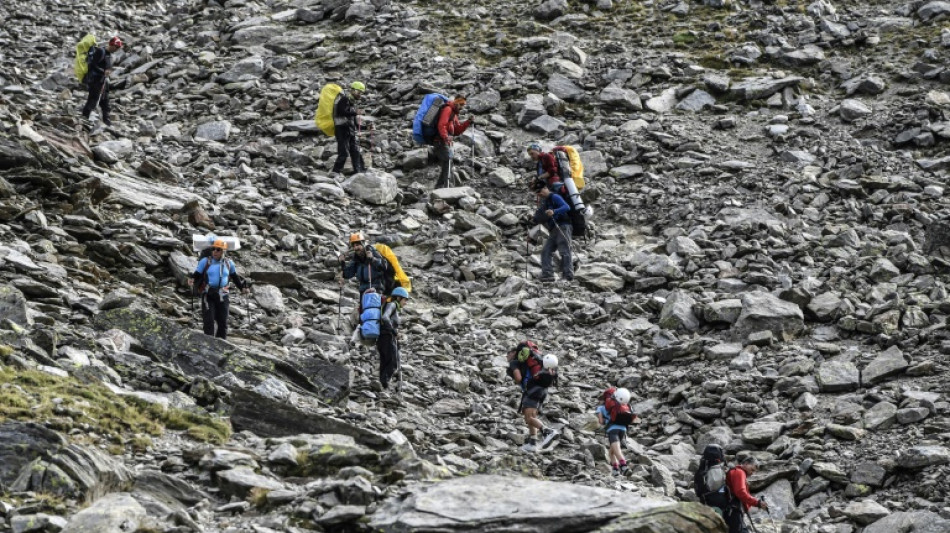
Drought-hit Mont Blanc shuts shelters to dissuade hikers

Authorities in the French Alps said Friday they had closed down two popular mountain shelters used by Mont Blanc climbers because of potentially deadly drought-related rockfalls.
In a year marked by drought and heatwaves, rockfalls and gaping crevices have made access to the top of Mont Blanc, western Europe's highest mountain, even more difficult and perilous.
The mayor's office in the Mont Blanc village of Saint-Gervais, said climbers were in "mortal danger" from rocks and shards coming loose because of dry weather and dropping from a height.
"All day long, we still see climbers going on the mountain range, all the time, as if this was Disneyland or the Parc Asterix," said Saint-Gervais mayor Jean-Marc Peillex, in reference to two popular theme parks near Paris.
Hikers had been advised since last month to stay away because of the danger, but "they just don't give a damn," he told AFP.
The closure of the two mountain shelters -- Gouter with 120 overnight spots and Tete Rousse with 74, as well as a base camp accommodating up to 50 people -- was to "show clearly that there is no accommodation available".
The authorities had warned for weeks that falling rocks were a danger, he said, adding that crossing the Gouter mountain corridor represented "a mortal danger", he said.
Nevertheless, 79 people stayed at the Gouter shelter Thursday night, he said.
The shelters will remain shut until normal weather conditions return, the mayor said, probably not before early September.
Peillex had warned Wednesday that Saint-Gervais would require a deposit of 15,000 euros ($15,200) from each hiker, saying the sum represented the average cost of a rescue operation and a funeral.
He was, however, advised that French law offers no basis for such a move.
A lack of snow during the winter has laid bare vast areas of greyish glacier -- yellowish where sand dust from the Sahara has accumulated -- riven with fractures on the Mont Blanc.
The heat did the rest, causing the fragile snow bridges to melt that make it possible to cross the crevasses, as well as leading to landslides.
Following several heatwaves, France is in the grip of severe drought, blamed by scientists on climate change.
On Friday, 100 municipalities across the country were without drinking water, Environment Minister Christophe Bechu said.
Calling the drought "historic", Prime Minister Elisabeth Borne called a crisis meeting Friday to seek solutions.
Scientists say human-induced climate change is amplifying extreme weather -- including the heatwaves, droughts and floods seen in several parts of the planet in recent weeks -- and say these events will become more frequent and more intense.
The international community has agreed that climate change poses an existential threat to human systems and the natural world.
T.Galgano--PV
